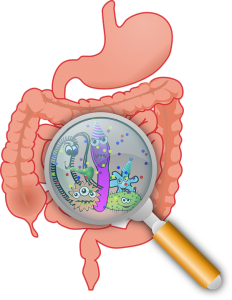 Unless you have kidney disease, you may not realize how important these small organs are to overall health. Although they are only about the size of a fist each, these bean-shaped organs do a lot for your body. Their main function is to filter the blood. However, they also work to remove wastes from the body as well as remove extra water to produce urine. The kidneys also make hormones to help with bone health and blood pressure health.
Unless you have kidney disease, you may not realize how important these small organs are to overall health. Although they are only about the size of a fist each, these bean-shaped organs do a lot for your body. Their main function is to filter the blood. However, they also work to remove wastes from the body as well as remove extra water to produce urine. The kidneys also make hormones to help with bone health and blood pressure health.
Because of these important functions, it’s important to eat healthy to take care of your kidneys. The Kidney Foundation endorses a DASH (Dietary Approaches to Stop Hypertension) diet for kidney disease. This diet is rich in fruits and vegetables and lean proteins and is low in sodium and added sugar. A recent study confirms such recommendations by saying that a plant-based diet is key to kidney health. Let’s learn more about the plant-based diet and how it can help kidney health.
About the plant-based diet
A plant-based diet is well-known for its benefits to heart health and lowering risk of diabetes. If yo want to follow such a diet, you don’t need to eat just plants to reap the health benefits. However, just adding plant-based foods to meals and snacks each day can help you gain fiber and a variety of nutrients. Such nutrients include antioxidants that can reduce oxidative stress and lower risk of chronic diseases like heart disease and diabetes.
Experts suggest that there are three types of plant-based diets that include:
- An overall plant-based diet: This diet focuses mainly on plant-based fruits, vegetables, nuts, and seeds, while limiting all types of animal products. These animal products include meats, fish, poultry, dairy products, and eggs.
- A healthful plant-based diet: This diet focuses on consuming mostly plant-based whole foods like fruits, vegetables, nuts, seeds, and legumes. In addition, this diet limits less healthy plant-based foods like processed foods and also limits animal products.
- An unhealthful plant-based diet: This type of diet consists mostly of unhealthy plant-based foods such as processed fruit juices, refined grains like pasta and white rice, as well as potatoes like french fries.
It was found that those following the healthful plant-based diet had the lowest risk of heart disease. On the other hand, those who followed the unhealthful plant-based diet had the highest heart health risk.
When it comes to kidney health, the plant-based diet can provide many health benefits. One of the primary benefits is that it will hamper the development or progression of some complications of kidney disease like heart disease. Also, research shows that a plant-based diet can help improve blood pressure, and glomerular filtration rate (GFR), of which the latter describes the flow rate of fluid through the kidney.
Kidney health diet recommendations
Vegetarianism, full or part-time, is recommended for those with kidney health issues. Therefore, a healthful plant-based diet, as mentioned before, could be beneficial to kidney health. In fact, a recent report by the American College of Physicians states that a plant-based diet could slow the progression of chronic kidney disease (CKD) and improve symptoms.
The plant-based diet is recommended since diets rich in vegetable proteins, rather than animal proteins, can improve acidosis and slow nephropathy in patients with CKD and poor renal function. Examples of plant-based diets, such as the Mediterranean and DASH diet, are recommended to improve kidney health.
Take home message
If you want to keep your kidneys healthy or improve the health of diseased kidneys, then the plant-based diet is the way to go. You can start slow by adding a serving of fruits or vegetables each day to meals and snacks. Then, slowly weed out most high sodium and high sugar foods from your diet. Before you know it, your body will feel better inside and out and your kidneys will be able to do their job the best it can.
If you still feel you need extra help with kidney health, try a supplement like Urivo by Vita Sciences. Urivo contains cranberry and probiotics, or healthy bacteria, that support immune system, bladder, and kidney health.
-written by Staci Gulbin, MS, MEd, RD
References:
American College of Physicians Internal Medicine Meeting (April 17, 2019) “Best dietary practices for those with CKD.” Healio
Gluba-Brzózka A, Franczyk B, Rysz J. (April 2017) “Vegetarian Diet in Chronic Kidney Disease-A Friend or Foe.” Nutrients. 9(4):374.
Harvard Health Publishing Harvard Medical School (January 2018) “The right plant-based diet for you.”
National Institute of Diabetes and Digestive and Kidney Diseases (June 2018) “Your Kidneys & How They Work.”
National Kidney Foundation (last reviewed February 2, 2017) “The DASH Diet.”
 When you first wake up in the money, it may be easy to grab something quick like a donut, pastry, or a quick bowl of cereal. However, what you choose to eat for breakfast could very well set the tone for what you eat the rest of the day. In fact, research shows that if you reduce carbohydrate intake at breakfast, then you could help control your blood glucose levels. Let’s learn a little more about this study, about blood glucose levels, as well as ways you can reduce carbs at your next morning meal.
When you first wake up in the money, it may be easy to grab something quick like a donut, pastry, or a quick bowl of cereal. However, what you choose to eat for breakfast could very well set the tone for what you eat the rest of the day. In fact, research shows that if you reduce carbohydrate intake at breakfast, then you could help control your blood glucose levels. Let’s learn a little more about this study, about blood glucose levels, as well as ways you can reduce carbs at your next morning meal. When it comes to eating healthy, your primary concern may be the short-term goal of losing weight. You may want to fit into a certain piece of clothing, or be in better shape for an upcoming event. However, it’s important not to forget that eating healthy can ultimately help you to extend your life. A recent report reveals that one in five deaths globally was linked to a poor diet.
When it comes to eating healthy, your primary concern may be the short-term goal of losing weight. You may want to fit into a certain piece of clothing, or be in better shape for an upcoming event. However, it’s important not to forget that eating healthy can ultimately help you to extend your life. A recent report reveals that one in five deaths globally was linked to a poor diet.
 With summer on the horizon, weight loss efforts are in full bloom. However, weight loss can provide more than just body confidence. The Centers for Disease Control report that just losing 5-percent of your body weight, which is equal to about 10 pounds for a 200 lb. person, can lower your risk of chronic diseases like heart disease and type 2 diabetes. Not to mention that a recent study shows that losing weight can also lower risk of migraines.
With summer on the horizon, weight loss efforts are in full bloom. However, weight loss can provide more than just body confidence. The Centers for Disease Control report that just losing 5-percent of your body weight, which is equal to about 10 pounds for a 200 lb. person, can lower your risk of chronic diseases like heart disease and type 2 diabetes. Not to mention that a recent study shows that losing weight can also lower risk of migraines. Anyone who has been on a healthy lifestyle plan knows that you should try not to drink your calories. This is because you want to cut calories wherever you can to lose weight. However, cutting out those sugary drinks are not only helpful in weight loss, but also in cutting your disease risk. In fact, a recent study found that those who drank less sugary drinks had a lower risk of chronic diseases and early death as compared to those who drank sugary drinks often.
Anyone who has been on a healthy lifestyle plan knows that you should try not to drink your calories. This is because you want to cut calories wherever you can to lose weight. However, cutting out those sugary drinks are not only helpful in weight loss, but also in cutting your disease risk. In fact, a recent study found that those who drank less sugary drinks had a lower risk of chronic diseases and early death as compared to those who drank sugary drinks often. If you’ve ever tried to eat healthy, which I’m sure most of us have, then you may have been told to eat more vegetables. This is a tried and true statement that is vital to every healthy lifestyle. This is because plant-based foods like fruits and vegetables are full of gut-healthy fiber and antioxidants. In turn, this helps to lower your risk of chronic diseases like heart disease and diabetes. That is why it may not be surprising that a recent study shows that a plant-based diet may help diabetes treatment.
If you’ve ever tried to eat healthy, which I’m sure most of us have, then you may have been told to eat more vegetables. This is a tried and true statement that is vital to every healthy lifestyle. This is because plant-based foods like fruits and vegetables are full of gut-healthy fiber and antioxidants. In turn, this helps to lower your risk of chronic diseases like heart disease and diabetes. That is why it may not be surprising that a recent study shows that a plant-based diet may help diabetes treatment. Although some fats are healthy in a balanced diet, too much of anything can be a harmful thing. For some people, like those with irritable bowel syndrome, too much fat in the diet may cause digestive distress. And for those with conditions like pancreatitis, fat is not digested well, so must be limited in the diet. Recent research shows that anyone, no matter their health status, may be at risk for gut health issues on a high fat diet.
Although some fats are healthy in a balanced diet, too much of anything can be a harmful thing. For some people, like those with irritable bowel syndrome, too much fat in the diet may cause digestive distress. And for those with conditions like pancreatitis, fat is not digested well, so must be limited in the diet. Recent research shows that anyone, no matter their health status, may be at risk for gut health issues on a high fat diet. When you think of high blood pressure, or hypertension, your heart health may be the first thing that comes to mind. But what many may not realize is that blood pressure also relates to the health of your mind. It makes sense if you think about it. All the body’s tissues and organs require oxygen from the blood that flows from the heart. If something is affecting blood flow, then this can affect the health of many parts of your body. Let’s look a bit more at blood pressure and how controlling it can improve the health of your heart and mind.
When you think of high blood pressure, or hypertension, your heart health may be the first thing that comes to mind. But what many may not realize is that blood pressure also relates to the health of your mind. It makes sense if you think about it. All the body’s tissues and organs require oxygen from the blood that flows from the heart. If something is affecting blood flow, then this can affect the health of many parts of your body. Let’s look a bit more at blood pressure and how controlling it can improve the health of your heart and mind. When most people start an exercise program, they may be trying to do one of a few things. Most people move more to lose weight, some exercise to gain muscle, and some just want to tone up. However, the benefit from exercise that most may not think of is improved mood. A recent study shows that moving more each day may have prevent depressive symptoms. Not to mention, that research also shows that preventing or improving such symptoms can help improve health outcomes in those with diabetes.
When most people start an exercise program, they may be trying to do one of a few things. Most people move more to lose weight, some exercise to gain muscle, and some just want to tone up. However, the benefit from exercise that most may not think of is improved mood. A recent study shows that moving more each day may have prevent depressive symptoms. Not to mention, that research also shows that preventing or improving such symptoms can help improve health outcomes in those with diabetes.